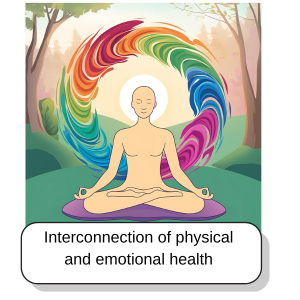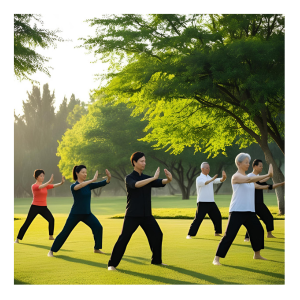Understanding TCM: The Ancient Healing Art of Traditional Chinese Medicine
Traditional Chinese Medicine (TCM) is an ancient healthcare system that has been practiced for thousands of years. Rooted in Chinese philosophy and culture, TCM emphasizes the balance of body, mind, and spirit as the path to overall health and well-being. Unlike conventional Western medicine, which often focuses on treating symptoms, TCM integrates various methodologies to restore harmony and promote healing within the body.
The Core Principles of TCM
1. The Concept of Qi
At the heart of TCM lies the concept of Qi (pronounced "chee"), the vital energy that flows through everything. Qi is seen as essential for maintaining health, and disruptions in its flow can lead to illness. TCM treatments, such as acupuncture, herbal medicine, and dietary therapy, aim to balance and enhance Qi flow throughout the body.
2. Interconnectedness of Body Functions
TCM views the body as an intricate network where every organ, function, and symptom is interconnected. This holistic perspective means that a problem in one area can affect others. For example, emotional stress may impact digestive health, demonstrating how emotional and physical wellness are intertwined.
 3. Natural Balance
3. Natural Balance
Health is viewed as a state of harmony and balance. When this balance is disrupted, illness can arise. TCM practitioners work to identify and mitigate these imbalances, promoting a path back to optimal health.
4. Individualized Treatment
In TCM, each treatment is personalized, taking into consideration unique physical, emotional, and environmental influences. This tailored approach empowers patients to understand their own health needs and make informed decisions about their care.
The Holistic Approach of TCM
At its core, TCM promotes a holistic approach to healing. This means addressing not just the physical symptoms of illness, but also the emotional and psychological dimensions. Here are some key benefits of this approach:
- Addressing Root Causes: TCM seeks to understand and treat the root causes of health issues, rather than just alleviating symptoms.
- Promoting Overall Wellness: By looking at the whole person, TCM encourages overall wellness and prevention, helping individuals maintain their health.
- Empowerment through Education: Patients become active participants in their care, learning about their bodies and making informed health choices.
In today’s fast-paced world, where quick fixes are often the norm, TCM offers a nurturing framework for establishing a deeper, more meaningful connection to one's health.
Fundamental Concepts of Traditional Chinese Medicine
Yin and Yang Theory
The Yin and Yang theory is a fundamental concept in TCM, representing the dual nature of everything in the universe. Yin embodies qualities such as coolness, darkness, and passivity, while Yang signifies warmth, light, and activity. For optimal health, these opposing forces must maintain balance.
- Yin Characteristics: Passive, restful, nourishing.
- Yang Characteristics: Active, aggressive, stimulating.
When Yin and Yang are imbalanced, health issues can arise, such as anxiety or digestive problems.
The Five Elements Theory
Another cornerstone of TCM is the Five Elements theory, which defines five basic elements: Wood, Fire, Earth, Metal, and Water. Each element corresponds to specific organs, emotions, and seasons, helping to create a comprehensive model of health and disease.
| Element | Associated Organ | Emotion | Season |
|---|---|---|---|
| Wood | Liver | Anger | Spring |
| Fire | Heart | Joy | Summer |
| Earth | Spleen | Worry | Late Summer |
| Metal | Lung | Sadness | Autumn |
| Water | Kidney | Fear | Winter |
For example, if someone experiences stress leading to digestive issues, they might trace the imbalance back to the Earth element, which governs the spleen.
 The Role of Qi in the Body
The Role of Qi in the Body
Qi is the vital energy that flows through the body’s meridians. Smooth circulation of Qi is essential for maintaining health; blockages or deficiencies can lead to illness. Many people experience rejuvenating effects from TCM practices like acupuncture, which help release stagnant Qi, resulting in increased energy levels and improved mood.
- Vitality: Qi fuels bodily functions and mental clarity.
- Flow: Qi must circulate freely for optimal health.
- Balance: Both deficiency and excess of Qi can lead to illness.
Conclusion: Embrace the Wisdom of TCM
Traditional Chinese Medicine offers a rich and profound understanding of health that encourages individuals to explore and cultivate their innate balance. By integrating its ancient wisdom into modern life, TCM invites us to build a nurturing relationship with our health.

